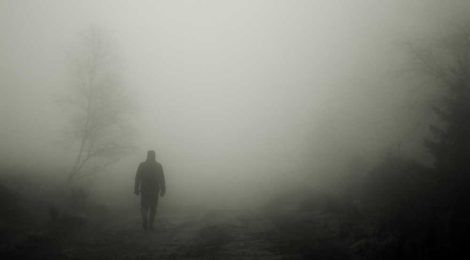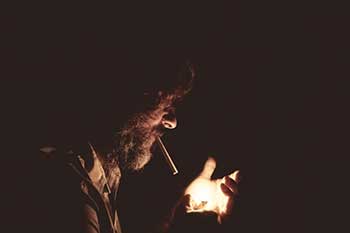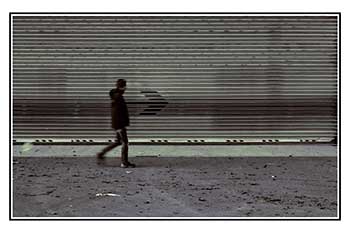
The Invisible Male Victims of Sexual Trauma
“No one comes running for young boys who cry rape” – Kevin Kantor, “People You May Know”.
Anthony Edwards, an American actor and director, widely known for his role as Dr. Mark Greene on the series ER, is also a child sexual abuse survivor. He was molested by Hollywood producer Gary Goddard. In his 2017 essay on Medium, Anthony revealed:
“I met Goddard when I was 12, and he quickly became a dominant force in my life. He taught me about the value of acting, respect for friendship, and the importance of studying. Pedophiles prey on the weak. My father, who suffered from undiagnosed PTSD from WWII, was not emotionally available. Everyone has the need to bond, and I was no exception. My vulnerability was exploited. I was molested by Goddard, my best friend was raped by him — and this went on for years. The group of us, the gang, stayed quiet.”
Other famous male survivors of sexual abuse, assault or harassment include Terry Crews, James Van Der Beek, Anthony Rapp, Alex Winter, and Ryan Locke, Robyn Sinclair and Terron Wood.

People who commit sexual violations against males can be male or female, family members, neighbours, co-workers, colleagues or peers, baby-sitters, current or past partners, sport teammates, military personnel, and people who hold positions of authority or power.
About 1 in 6 males have experienced child sexual abuse or adult sexual assault. As of 1998, 2.78 million men in the U.S. had been victims of attempted or completed rape. The mental health effects of sexual victimization are severe. Victims are at greater risk of suffering from depression and post-traumatic stress disorder, more likely to abuse alcohol and drugs, and to contemplate suicide. One study found that these males experience an increased sense of vulnerability, increased anger/irritability and damaged self-image, concluding that the immediate and long-term responses were similar to those described in female victims of rape, contradicting the myth that sexual abuse and assault is less harmful for males than females. And a study conducted by the U.S. Centers for Disease Control found that the sexual abuse of boys was more likely to involve penetration of some kind, which is associated with greater psychological distress.
Both men and women experience characteristics of post-traumatic stress disorder. Still, there is general reluctance to recognize and validate the pain it causes men. And there is limited research on sexual abuse and assault on males. When seeking supportive resources, such as homeless shelters, rape crisis centres, or therapy centres, sexually abused men find there are few, if any, services specifically designed for male victims.
A scan of support services in Canada for male survivors of sexual abuse found only three organizations in the country were dedicated to providing services to this population. Unwanted sexual experiences for males are “common, under-reported, under-recognized, and under-treated”.
Social pressures surrounding male identity play a role. Boys and men report shame for having been victimized in a sexual manner, as well as fear of having their sexuality questioned and for expressing vulnerable emotions. As Rick Goodwin, clinical MSW, from 1in6 and Men and Healing describes:
“We all grew up, regardless of gender, with these dictates of the male code. It’s not just boys who grew up with these values. It’s their siblings, fathers and mothers. Part of the understanding of masculinity is that boys are invulnerable. So, the conception of male victimization is hard for us to wrap our heads around. We know that there are components of masculinity that prevent guys from talking out. So, if part of masculinity is invulnerability, we also have to consider that vulnerability might make men shame-prone because it runs counter to what is expected of their gender”.

Men who have been sexually abused or assaulted feel as though their masculinity has been compromised, Jordan (name changed), a survivor of child sexual abuse, confirms:
“I feel inadequate, like I am not a real man. And when people ask, ‘How could you have let that happen to yourself,’ it makes things worse because that is precisely what I have spent two decades trying to come to terms with.”
Men have difficulty acknowledging their experiences as traumatic. A study about childhood sexual abuse found that only 16 percent of men with documented histories of sexual abuse considered themselves to have been sexually abused compared to 64 percent of women with similar documented sexual abuse histories. Rick explains:
“Males take a longer time to identify that they’ve had a harming, abusive, traumatic experience. The average age at which men come into our clinic here in Ottawa is 45. Women don’t take that long. We also think that the average age for sexual abuse for boys is between the ages of 9 or 10. So, we’re talking about 3 and a half decades of males keeping quiet about this.”
Rick further emphasizes the need to recognize and support male victims:
“The number one regret for males I work with who are survivors of childhood trauma is, ‘Why didn’t I do this work 20 years ago, 30 years ago?’ They realize their experience changed them so profoundly. And that’s a painful acknowledgment because, of course, you can’t turn back time.”
-Riana Fisher, Contributing Writer
Image Credits:
Feature: Pxhere, Public Domain
First: Pxhere, Public Domain
Second: Pxhere, Public Domain




Well done article. Helpful. Informative. Your information needs to get more widely circulated. I’ll do my part and share your information with my friends. Thank you.
Thank you for writing this. Very important.
My career has been working in male jails and prisons. I am still shocked by the number of men that endorse being victims of childhood sexual abuse. Thank you for putting light on this dark yet omnipresent issue. I am grateful of the # of men that have disclosed to me and engage in beginning to work w me to begin their journey to heal. Awful. Just awful. However, the lives they have then been able to lead…I am honored to watch their journeys in recovery.
Excellent article — Thank you!
Just this afternoon, a twenty-something male patient described an incident, and looked up at me asking: ” was that rape?”
It most certainly was, and I was saddened by his question.
More information needs to be put out there so that young men don’t have to ask…..
Boys/men are victims of sexual abuse just as much as woman. Why is it when men expose their perpetrator, they are seen as ” wimps”? Is it socialism or stigma in our society that men shouldn’t be open about their experiences? This is not fair for men to openly express their experiences as a victim of sexual abuse.
Great article sorry that happened to you
Thank you writing this and sharing. The silence needs to be broken
Thank you for this! We must challenge the mindset that makes can’t be victims of sexual abuse, sexual assault and domestic violence. The ONLY way to do this is by making it okay for boys and men to come forward. Thank you for helping stop the silence!